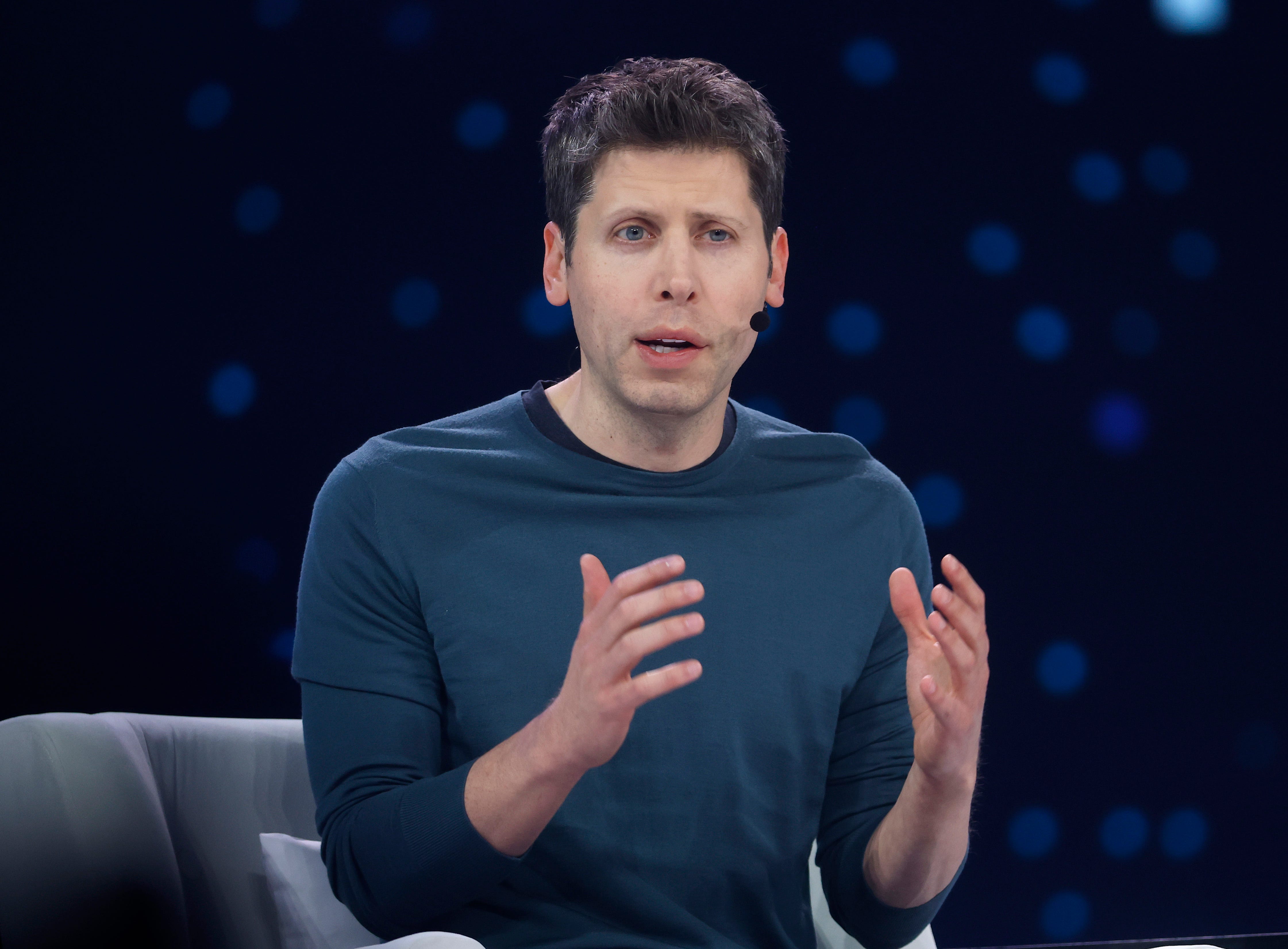
Justin Sullivan via Getty Images
OpenAI’s CEO, Sam Altman, said the energy needed to power an average ChatGPT query can keep a lightbulb on for a few minutes.
Altman was writing about the impact that AI tools will have on the future in a blog post on Tuesday when he referenced the energy and resources consumed by OpenAI’s chatbot, ChatGPT.
“People are often curious about how much energy a ChatGPT query uses; the average query uses about 0.34 watt-hours, about what an oven would use in a little over one second, or a high-efficiency lightbulb would use in a couple of minutes,” Altman wrote.
“It also uses about 0.000085 gallons of water; roughly one-fifteenth of a teaspoon,” he continued.
Altman wrote that he expects energy to “become wildly abundant” in the 2030s. Energy, along with the limitations of human intelligence, have been “fundamental limiters on human progress for a long time,” Altman added.
“As data center production gets automated, the cost of intelligence should eventually converge to near the cost of electricity,” he wrote.
OpenAI did not respond to a request for comment from Business Insider.
This is not the first time Altman has predicted that AI will become cheaper to use.
In February, Altman wrote on his blog that the cost of using AI will drop by 10 times every year.
“You can see this in the token cost from GPT-4 in early 2023 to GPT-4o in mid-2024, where the price per token dropped about 150x in that time period,” Altman wrote.
“Moore’s law changed the world at 2x every 18 months; this is unbelievably stronger,” he added.
Tech companies hoping to dominate in AI have been considering using nuclear energy to power their data centers.
In September, Microsoft signed a 20-year deal with Constellation Energy to reactivate one of the dormant nuclear plants located in Three Mile Island.
In October, Google said it had struck a deal with Kairos Power, a nuclear energy company, to make three small modular nuclear reactors. The reactors, which will provide up to 500 megawatts of electricity, are set to be ready by 2035.
Google’s CEO, Sundar Pichai, said in an interview with Nikkei Asia published in October that the search giant wants to achieve net-zero emissions across its operations by 2030. He added that besides looking at nuclear energy, Google was considering solar energy.
“It was a very ambitious target, and we are still going to be working very ambitiously towards it. Obviously, the trajectory of AI investments has added to the scale of the task needed,” Pichai said.
The post Sam Altman says the energy needed for an average ChatGPT query can power a lightbulb for a few minutes appeared first on Business Insider.




